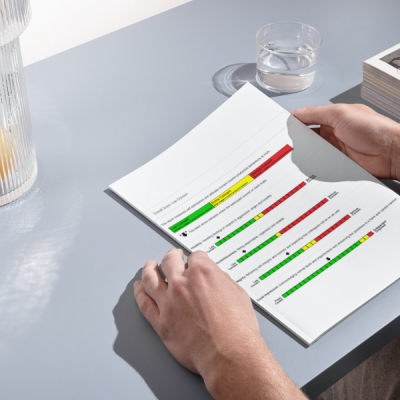See behind a Good Impression
31 May 2020The Impact on Personality Assessments
It has been acknowledged that any use of questionnaires can lead the results to be skewed. For example, you know that taking drugs is wrong, so you’re not going to admit it to a potential employer. The way around this is to word questions in a well thought out way, avoiding directly asking questions that would normally lead to biases occurring.

The Good Impression Scale of the Care Advantage Personality Assessment studies behaviours that are ‘too good to be true’. If the respondent completing the questionnaire answers too many questions in a way that suggests Good Impression bias is occurring, this system has algorithms in place to identify and correlate these responses on the Good Impressions Scale. This enables you to question how truthful the respondent is being and whether the results will accurately reflect that person. This removes some of the bias from the questionnaire, making it more reliable.
What Does It Mean If A Person Scores Highly on The Good Impressions Scale?
In addition to the fact that alarm bells should be ringing about the truthfulness of the respondent, high Good Impression Scale scores often indicate that the individual has trouble accepting blame, strives to be socially accepted and is socially sensitive. These traits can be very useful in some jobs, but the beauty of this Good Impression Scale is that you are aware of these traits prior to recruiting a person, allowing you to find the best fit for the job. At the very least, identifying these high scores allows you to proceed with caution when making decisions that affect your organisation.
In Summary
Using the Good Impression Scale of the Care Advantage Personality Assessment puts the reigns back in your hands. It gives you further insight into potential candidates, allowing you to make informed choices for your organisation. The more you know about your candidates, the more you can be sure you’ve found the right fit. By identifying that Good Impression bias has taken place, you are able to use this knowledge to your advantage, allowing you to analyse the situation and make the best hiring decisions.
Want to learn more about our psychometric assessments?





